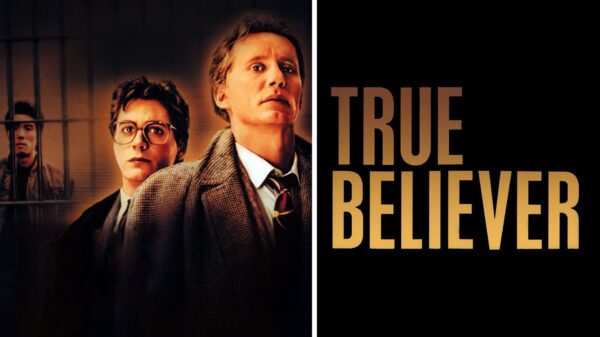“Terms of Endearment,” directed by James L. Brooks and released in 1983, is a poignant and multi-faceted film that weaves together the threads of love, family, and the complexities of human relationships. Adapted from Larry McMurtry’s novel, the movie captures the essence of life’s joys and sorrows through the lens of a mother-daughter dynamic. With a stellar cast, including Shirley MacLaine, Debra Winger, and Jack Nicholson, the film garnered critical acclaim, winning five Academy Awards, including Best Picture, and solidifying its place as a classic in the realm of family dramas.
At the heart of “Terms of Endearment” is the relationship between Aurora Greenway, played by MacLaine, and her daughter Emma, portrayed by Winger. The film spans several decades, offering a nuanced and authentic portrayal of the evolving dynamics between the two women. Aurora is a strong-willed and often overbearing mother, while Emma is her spirited and independent-minded daughter. Their bond is characterized by love, friction, sacrifice, and ultimately, an unbreakable connection that transcends the passage of time.
Shirley MacLaine Is Her Tremendous Self
Shirley MacLaine’s performance as Aurora is a tour de force. Her portrayal is a delicate balance of strength and vulnerability, capturing the character’s resilience in the face of life’s challenges. Aurora’s acerbic wit, sharp tongue, and unwavering devotion to her daughter make her a complex and memorable character. MacLaine’s ability to infuse Aurora with both humor and pathos earned her the Academy Award for Best Actress, a testament to her skill in bringing depth to this maternal figure.
Debra Winger Makes Splash In “Terms Of Endearment”
Debra Winger, as Emma, complements MacLaine’s performance with her own brand of authenticity. Emma’s journey from a headstrong young woman to a wife and mother facing life-altering circumstances is portrayed with emotional resonance by Winger. The chemistry between MacLaine and Winger is palpable, and their on-screen interactions drive the emotional core of the film. The complexity of their relationship forms the narrative backbone, making “Terms of Endearment” a compelling exploration of the intricacies of motherhood and filial bonds.
The film’s narrative unfolds against a backdrop of societal changes, from the 1950s through the 1980s, providing a canvas that reflects the shifting dynamics of family life. Aurora’s traditional values and expectations clash with Emma’s desire for independence and self-discovery, mirroring the broader cultural shifts during this period. The exploration of generational differences adds depth to the film, capturing the essence of an era in flux.
Jack Nicholson’s portrayal of Garrett Breedlove, a retired astronaut and Aurora’s love interest, injects a delightful dose of humor and charisma into the story. Nicholson brings his trademark charm and wit to the character, creating a memorable supporting role that earned him the Academy Award for Best Supporting Actor. The chemistry between MacLaine and Nicholson is palpable, offering a nuanced depiction of later-in-life romance and companionship.
Brooks, known for his work in both film and television, directed and adapted “Terms of Endearment” for the screen. His storytelling approach is marked by a blend of humor and heart, a balance that infuses the film with a distinct emotional resonance. Brooks’ skill in navigating complex relationships and infusing humor into poignant moments is evident throughout the film. The pacing, character development, and narrative structure contribute to the film’s success as a family drama that resonates across generations.
The film’s screenplay, also penned by Brooks, is a standout element. The dialogue is sharp, witty, and emotionally charged, capturing the essence of the characters and their relationships. The script navigates seamlessly between moments of laughter and tears, mirroring the highs and lows of life. Brooks’ ability to infuse everyday moments with profound significance contributes to the film’s enduring impact.
“Terms of Endearment” is notable for its emotional authenticity and its ability to elicit a range of feelings from its audience. The film tackles themes of love, loss, and the inevitable complexities that accompany familial relationships. The emotional rollercoaster experienced by the characters resonates with viewers on a deeply personal level, making it a film that transcends its specific narrative to touch on universal aspects of the human experience.
One of the film’s most memorable scenes occurs in the hospital room where Emma is receiving treatment for cancer. The raw and heart-wrenching exchange between mother and daughter is a masterclass in acting, as MacLaine and Winger lay bare the complexities of their characters’ relationship. This pivotal moment is a testament to the film’s ability to navigate the emotional spectrum, from laughter to tears, in a seamless and genuine manner.
The film’s title, “Terms of Endearment,” encapsulates the essence of the story. It speaks to the various ways love is expressed within the context of family, from the endearing nicknames shared between loved ones to the unspoken understanding that binds them together. The title serves as a thematic anchor, inviting audiences to explore the nuances of love in its many forms.
The film’s impact extends beyond its critical acclaim and awards. “Terms of Endearment” struck a chord with audiences, becoming a cultural touchstone that continues to resonate with viewers. Its enduring popularity can be attributed to its relatable portrayal of family dynamics, the stellar performances of its cast, and its ability to balance humor and heartache.
In conclusion, “Terms of Endearment” is a masterfully crafted family drama that stands the test of time. Shirley MacLaine and Debra Winger deliver powerhouse performances, bringing depth and authenticity to their characters. Jack Nicholson adds a layer of charm to the narrative, and Brooks’ direction and screenplay provide a nuanced exploration of love, sacrifice, and the intricate tapestry of family life. As a classic in the genre, “Terms of Endearment” continues to resonate with audiences, inviting them to reflect on the enduring nature of familial bonds and the profound impact of love across generations.























